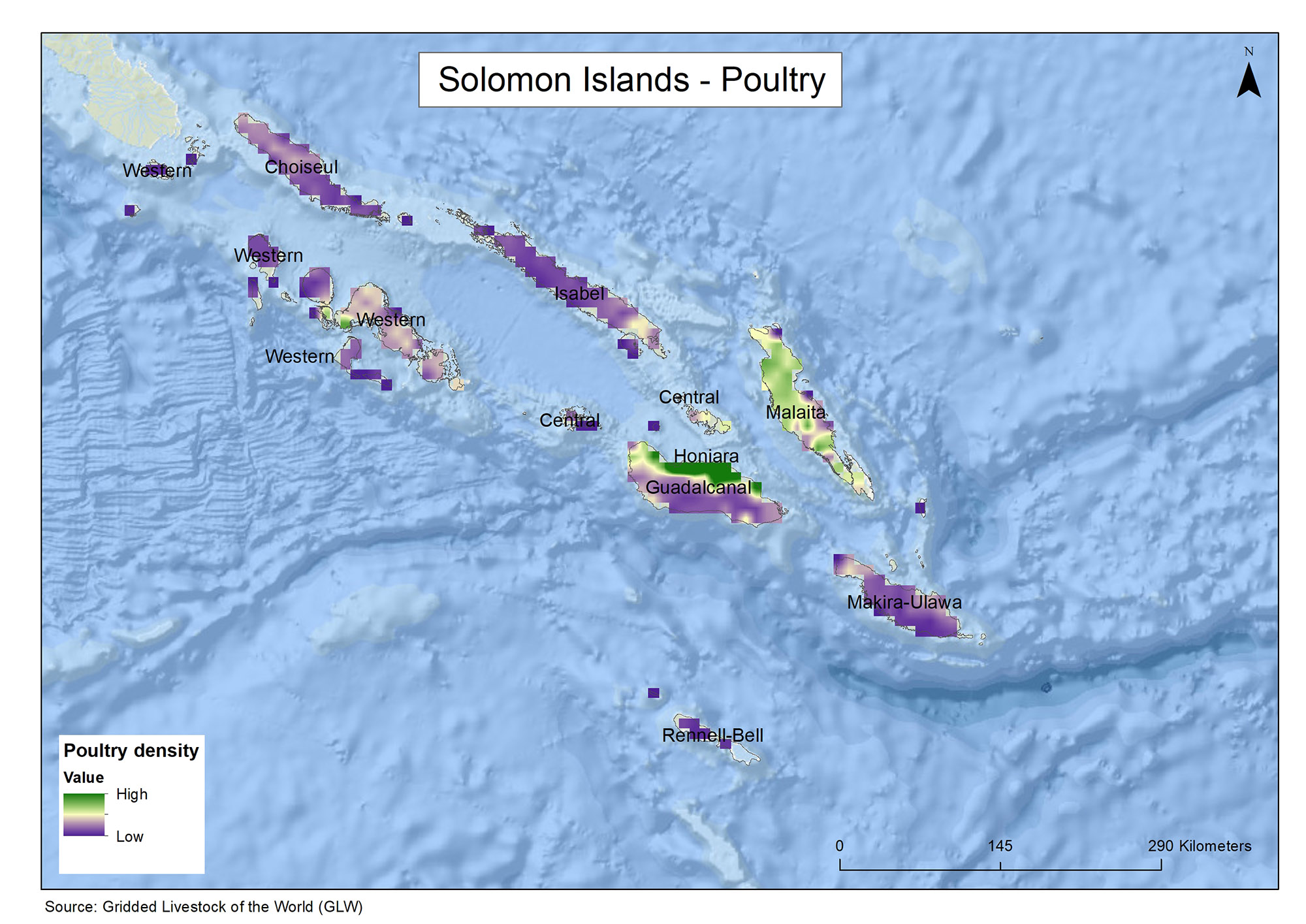Solomon Islands |
THE PROPOSAL
The Government of Solomon Islands has a 10-year agriculture sector development and investment goal plan, seeking a sustainable, resilient, competitive and profitable agriculture sector that enhances economic growth, food sovereignty and prosperity for all Solomon Islanders. As part of this plan, the Hand-in-Hand Initiative supports investments in poultry and coconut.
The plan has four strategies:
- Promote governance management and innovation
- Enhance national food and nutrition security
- Boost livestock production for import substitution
- Strengthen crop production for export earnings
COMMODITIES AND INTERVENTIONS
Poultry
The Government is supporting investments in poultry in the Honiara, Malaita and Western Province, with the aim of promoting domestic poultry production and reducing reliance on imports.
The strategy is to increase production by establishing 48 broiler chicken farms, 16 layer chicken farms and seven hatchery farms across the three provinces. In addition, investments are sought for establishing poultry feed mills, parent flock farms, processing facilities and acquiring technical assistance as part of an effort to develop domestic value chains. Finally, investments will also go to building breeding, multiplication and distribution farms, as well as providing technical training, grant and loan access for farmers, and developing state veterinarian livestock extension services.
The total investment required is US$ 15.2 million, which would benefit 480 farmers directly and 2,500 indirectly. Specifically, US$9.9 million will be spent on broiler farms, with expected internal rate of return of 14%; US$1.1 million will be spent on layer farms and has an internal rate of return of 34%; US$2.2 will be used to strengthen hatchery support and has an internal rate of return of 27%. The rest will be invested in supporting farmers.

COMMODITIES AND INTERVENTIONS
Coconut
The Government has also prioritized the coconut value chains as part of an effort to regenerate a vital industry and improve yields.
Interventions focus on rehabilitating plantations of 1 million aged coconut trees, so that smallholder farmers can raise coconut yield up from $690/ha to $2,000/ha meeting international standards. Another intervention is to set up 20 virgin coconut oil extraction units across the islands to assist farmers to produce an aggregate of 15,000 litres of virgin coconut oil annually. Twenty-seven copra drying units will be established across the islands for farmers to dry 840 metric tons of export-quality grade copra annually. Additional strategies include developing germplasm, seed gardens, intercropping initiatives and biosecurity control to create robust coconut farms. Finally, the Government has plans to promote prioritized post-harvest processing innovation, product diversification, technical training, marketing and trade.
With expected 6,400 direct and 34,000 indirect beneficiaries,
A total investment of US$25.3 million is required. This would benefit 6,400 farmers directly and 34,000 farmers indirectly. Of the total, US$20.4 million is slated for plantation rehabilitation, with an internal rate of return of27%; US$130,000 will be invested to build copra drying facilities, with an internal rate of return of 31%; US$1 million will be invested in virgin oil extraction, whose internal rate of return is 31%. Finally, US$1.2 million will be spent to support germplasm, sea gardens, intercropping initiatives and biosecurity control, and US$2.6 million for post-harvest processing innovation, product diversification, technical training, marketing and trade promotion.
Deputy Secretary Michael Ho'ota discusses the HIH Initiative in Solomon Islands

